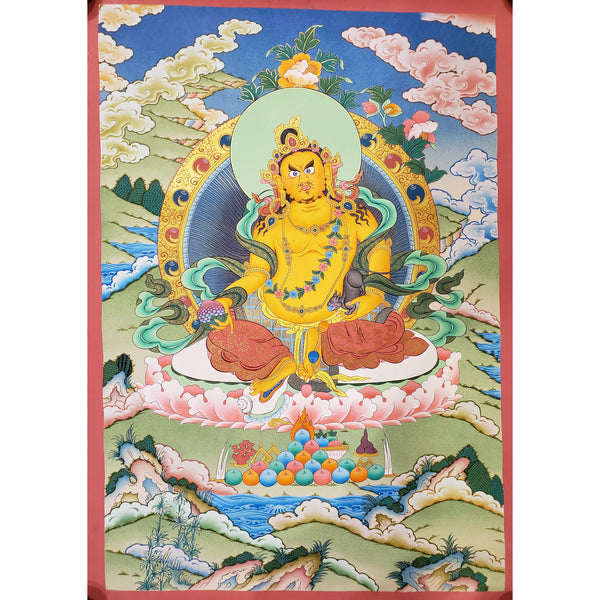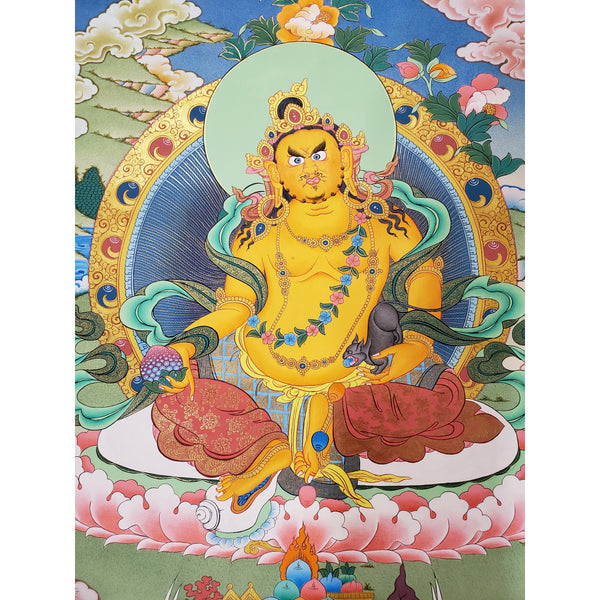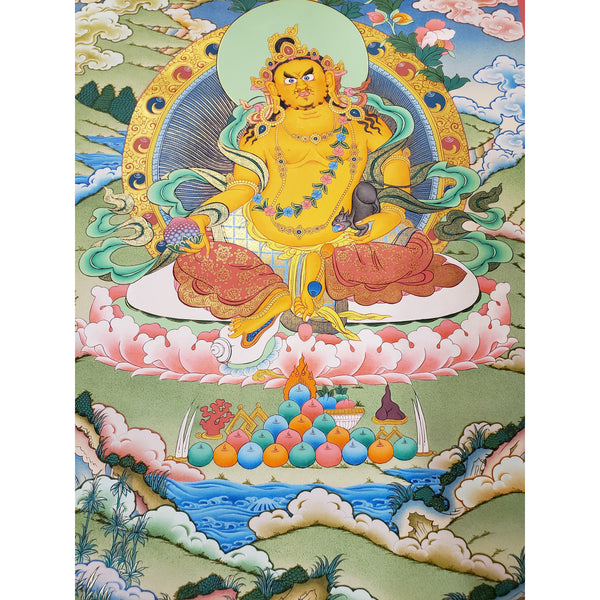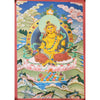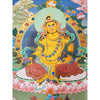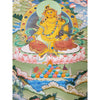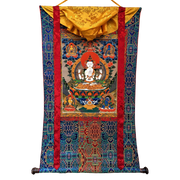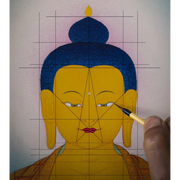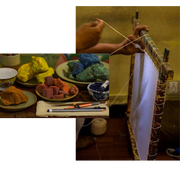Jambhala (Kubera) Tibetan Thangka Painting
SPRING SALE
Get it between - .

Jambhala (Kubera) Thangka – The God of Wealth and Abundance
This 100% hand-painted Thangka, created in the Kathmandu Valley of Nepal, features Jambhala (Kubera), the revered God of Wealth and king of the semi-divine Yakshas. Meticulously crafted with Tibetan gold dust and traditional colors, it serves as a stunning wall hanging or spiritual centerpiece for your family altar, radiating prosperity and benevolence.
Specifications
- Dimensions: 82 x 59 cm
- Materials: Tibetan Gold Dust and Tibetan Colors mixed with Hide Glue
- Canvas: Organic Cotton
- Hand Painted: By skilled artisans in Nepal
About Kubera
Jambhala, also known as Kubera, is a member of the Jewel Family and the God of Fortune and Wealth. He is considered an emanation of Avalokitesvara (Chenrezig), the Bodhisattva of Compassion. Jambhala is known for bestowing financial stability and spiritual wealth, as well as protecting all sentient beings from illnesses and hardships.
There are five wealth Jambhalas, each associated with unique practices and mantras to overcome poverty and establish financial security. As a Bodhisattva, Jambhala not only grants material abundance but also enhances virtues, life span, and wisdom. He is revered for his powerful form, which defends against harmful spirits, negative karma, and obstacles while attracting good fortune and happiness.
Key Benefits
- Symbol of Prosperity: Invites wealth, abundance, and good fortune into your space.
- Sacred Energy: Enhances the spiritual and emotional energy of your meditation or prayer altar.
- Cultural Significance: Reflects the artistic and spiritual traditions of Hindu, Buddhist, and Jain cultures.
- Artistic Elegance: A perfect blend of traditional craftsmanship and timeless beauty, ideal for décor and spiritual practices.
Kubera’s Role Across Traditions
In Hinduism, Kubera is honored as the god-king of the Yakshas, guardians of wealth and treasures. In Buddhism, he is known as Vaisravana, the guardian of the north, symbolizing stability and prosperity. In Jainism, Kubera is revered as Sarvanubhuti, emphasizing his universal role as a deity of abundance and spiritual harmony.
A Perfect Blend of Art and Spirituality
The Jambhala (Kubera) Thangka is not just a decorative masterpiece but also a powerful spiritual tool. Whether displayed in your home or office, it enhances the aesthetic and spiritual atmosphere, inviting blessings of prosperity and well-being.
You can find answers to common questions on our FAQ page here.
View all our shop reviews at reviews page here.

